On Thursday morning at the NPM Convention in Raleigh, NC, I was privileged to sit on a panel with some really wise and insightful people; the topic was multi-generational music ministry, and how it could work in our various parish situations. Probably the most exciting thing about this panel was how many people came to it—we had a full room, so clearly this is a topic that touches the ministerial lives of a lot of people. I would like to share a few thoughts here, particularly for those who were unable to be there last week.
One of the questions we addressed as a group was this: “We are in a time in history where people are often segmented from each other. What are the benefits to having a multigenerational vocal ensemble?”
Several of us spoke to address this question, but the overall gist seemed to center around the fact that each age group has something to learn from the others, that our different wisdoms enrich one another in a way that remaining separate cannot. Children learn faith from their elders—not by classroom learning, as one of the panelists said, but they “catch” faith from those around them; it’s contagious and it spreads. This whole question also resonates with the idea of the wholeness of the Body—the Body is many parts, but we are all together and all one. As Rahner says (though admittedly I will be mangling him in the paraphrase), we come together in Sunday liturgy to “rehearse” for the liturgy of the world, the great and grand liturgy we celebrate when we leave the walls of the church. If within the church we rehearse and experience and sing and celebrate the reality of everyone being one, this helps and creates the reality that oneness envisions. It’s too easy to let “them” be separate from “us”…but if we can come together and experience one another’s gifts and wisdom, we will all be better humans.
Another question spoke to the practical side of bringing together seniors, adults, teens, and children, the challenges involved and the question of who needs to be “on board” to make it happen. This was an interesting question, and one which I wished we’d had more time to dive into, because the answer, while fairly straightforward, can play out different ways. The obvious, no-brainer answer to who needs to be on-board is of course going to be, “the music ministry/music director.” But there are a lot of different kinds of music ministries, with different staffing models.
In my last parish, when I was full time there (a model which I am aware increasingly few churches are able to sustain), I directed all the choirs—adult, teen, and children. The parish before that, there were two of us; I had the adults and the older children, and a colleague (who was also a really good friend, and a super person to work with) had the youngest children and the teens. In both of these situations it was incredibly easy to have the groups work together, because there weren’t too many chefs in the kitchen or people to coordinate.
On the other hand, in a parish situation where there are different part time musicians leading the children, the teens, the adult Sunday morning choirs, and the Saturday afternoon contemporary ensemble, it gets trickier. Everyone is a little busier, every schedule is a little more crazy, and the likelihood of territorialism or drama begins to rise. It’s harder to find times to gather people, and unless all the players have over time developed an excellent working relationship and a solid basis of consistent repertoire, there may not be enough consistent repertoire to rely on. (That said, developing that consistent “Parish Top Ten” body of rep that everyone knows is a really good idea for helping your whole music ministry be more able to function in moments when varied groups come together.) Here there will need to be more planning, more coordination, and possibly more good-will across the board…but it is still possible, and very much worth the challenge.
My favorite set of questions on this topic came all sort of in a group: How often do musicians get an opportunity to reach people who might become regular members of your choirs? Musically, does a separate ensemble need to be organized to make this happen? Or, is there a chance that a few rehearsals can be called and people can commit to a very specific period of time?
In all frankness, questions about unity and spirituality and becoming what we believe aside, it is my belief that multi-generational special-event choirs are the single best recruiting tool any choir can ever have. Not everyone can commit to weekly rehearsals and choir membership—and someone who could do it five years ago maybe can’t do it now, but maybe they will again when their kids reach high school age. Life circles around and seasons change, but it is a tremendous gift to be able to stay connected with music-lovers at all stages of their lives.
Following are several potential multi-generational opportunities with incredible potential for recruitment and outreach:
- Thanksgiving Day
Many parishes have a “special” Thursday morning Thanksgiving Day celebration. These tend to be joyous and well-attended, and everyone who comes is there because they want to be there. This is the perfect opportunity to invite all of your choirs, of all ages, to come together, and to bring family members who might not already be in one of the groups. Sing music everyone is fairly familiar with, and hold one rehearsal a few days before the day (Wednesday night tends to lose anyone with family coming into town)—with snacks and plenty of social time. All of your age-groups of people get to make music together, and this one day provides an easy and low-stress opportunity for newcomers.
- Christmas (or Christmas Eve)
The biggest draw for this one, I have found, is the guarantee of the best seat in the house on the most crowded church day of the year. Invite a group to come together, adults and children, seed the group with a few of your solid part-singers (and their kids and/or grandkids), and sing familiar carols. Let your most advanced choir sing for Midnight Mass, but let the earlier “Family Mass” be relaxed and celebratory; alternatively, track down parishioners who love to sing but don’t want to brave the Christmas Eve crowds, and invite them to come back on Christmas morning. It’s a wonderful thing, and a happy day for all.
- Summer Choir
In last year’s book Gathering Gifts, Building a Program,there is an article by Michael Silhavy about his practice of forming a “Summer Choir” in his parish every year when the regular groups take a break. This is a wonderful opportunity to give the year-round choir a little time to relax and not be “on,” and to invite anyone of any age—families, adults, kids, teens—to come on a Sunday to Sunday basis as they are available. They can come an hour before Mass, learn an easy anthem (chosen for its flexibility, because of course in this model one doesn’t know exactly who or how many will be there), sing the hymns, have hospitality and donuts before Mass and get to know each other a little, and then sing. Some will very likely decide to stay into the fall, if their life permits.
- First Communion
This one is probably my favorite. In one of my former parishes, I would put out a sign-up sheet a few weeks before the parish First Communion celebrations and beg my choir members to sign up to sing one or both of our big Masses; it also went onto the Children’s Choir calendar back at the beginning of the season. Honestly, after the first year I didn’t have to beg; people had a wonderful time (and we gave them lunch)(Feel free to take note of how many of these suggestions involve food of some kind). The witness of that mix of adults and children, leading song and singing familiar music while the young Communicants came to the table for the first time, made, I think, a deep and lasting impression on everyone there. The celebration was not just about the children and their “special day,” isolated from the rest of their life as Christians, but rather it was in the midst of their community; the children were supported by not just their families but the whole parish. And we would invite to sing with us family members of those who were coming to the table as well, so we usually had at least a few people from neighboring parishes who sang in the choirs there, and we got to make connections from parish to parish and be welcoming and hospitable to new friends in our midst. It was wonderful.
Bottom line—if your parish has not explored the idea of pulling together a multi-generational choir, for special events or through a season…maybe this year is the time?
Deep thanks to Christopher Titko of J. W. Pepper and Berta Sabrio of NPM for convening this panel and making it possible!
UPDATE AND POSTSCRIPT: A few people have commented on the Facebook page that in their parish situations the diocesan guidelines for adults needing to take “safe environment” trainings and be certified to even be in the room with minors has made this entire proposition a lot more complicated than just going, “Let’s put us all together!” I am curious how people have found a way to make this work?

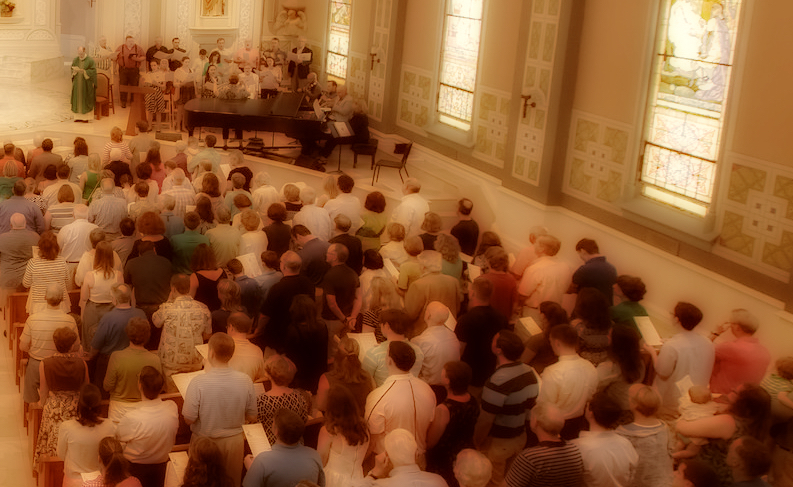


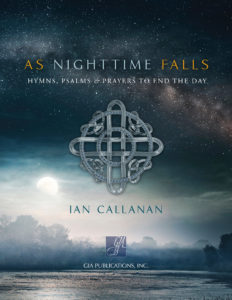

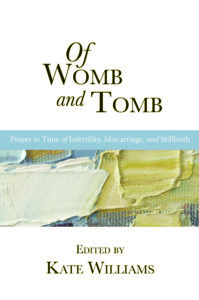
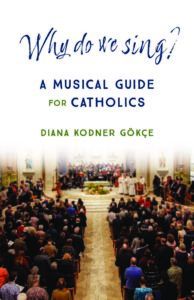
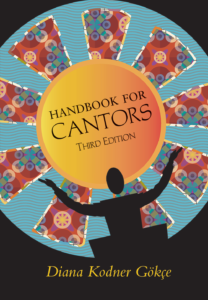
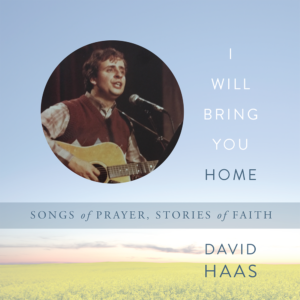
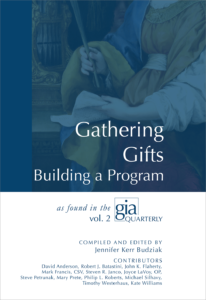

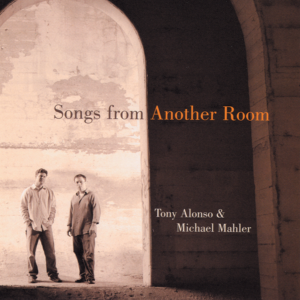



These insights are direct on, Jennifer. Thank you for posting them and giving us food for thought about how to make the music sacramental, as Sing to the Lord says it is. God is incarnate in all ages, all cultures, all peoples and we have the opportunity to recognize Christ’s presence in these ages and help Christ be seen, heard, felt, and known in these rich and varied manifestations.